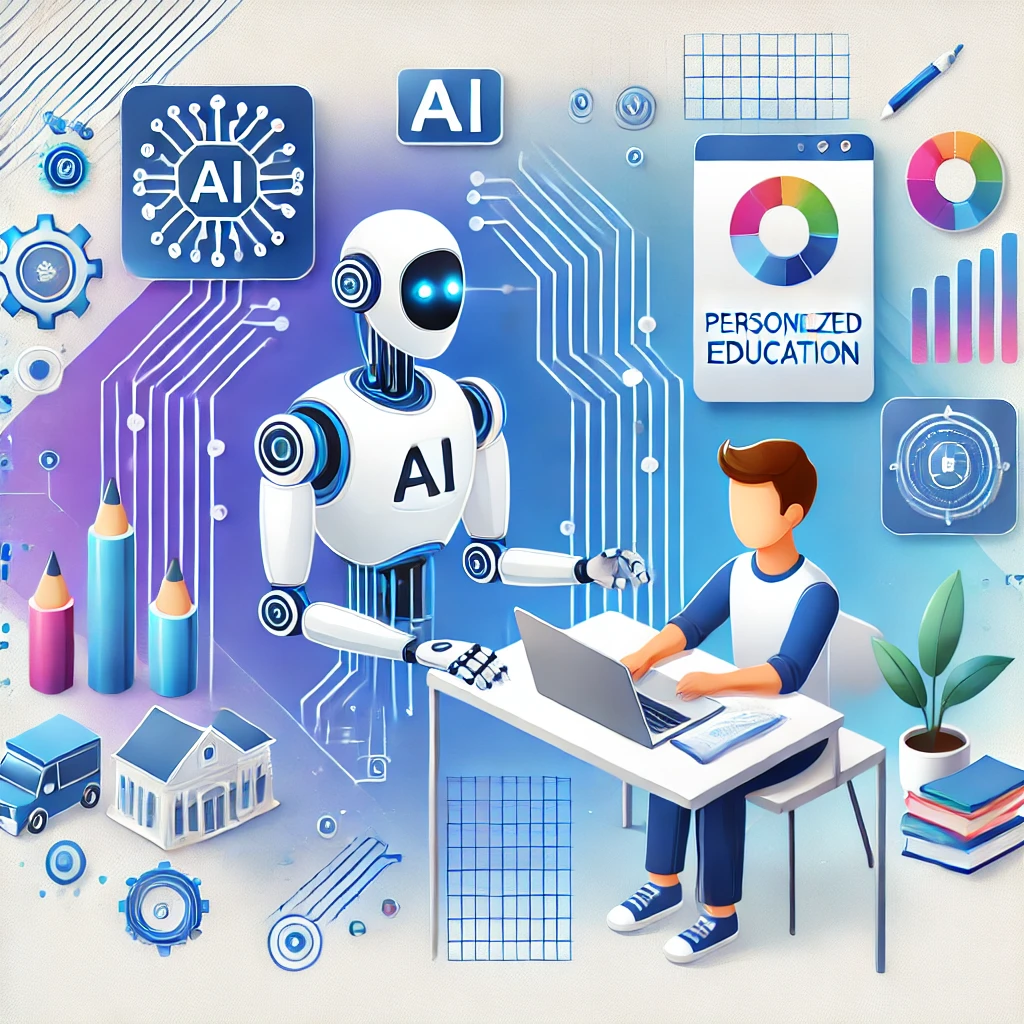Introduction
Education is no longer a one-size-fits-all approach. With the rise of Artificial Intelligence (AI), personalized learning is becoming the norm, transforming how students learn and teachers teach. 🌟 In this blog, we’ll explore how AI is bringing personalization to education and why it’s a game-changer for learners worldwide. 🌍✨
What is Personalized Education? 🎯
Personalized education tailors learning experiences to meet the unique needs, strengths, and interests of each student. Instead of following a rigid curriculum, students can learn at their own pace, focus on areas they find challenging, and explore topics they’re passionate about. 🧠💡
How AI Enables Personalization in Education 🤖📊
- Adaptive Learning Platforms
AI-powered platforms like Khan Academy and Duolingo use algorithms to analyze student performance and adapt content in real-time. If a student struggles with a concept, the system provides additional resources or simplifies the material. 📈📚 - Intelligent Tutoring Systems
AI tutors offer one-on-one support, answering questions and providing feedback 24/7. These systems mimic human tutors but are available anytime, anywhere. 🕒💬 - Customized Learning Paths
AI analyzes data from quizzes, assignments, and interactions to create personalized learning paths. This ensures students focus on areas that need improvement while advancing in subjects they excel in. 🛤️🎓 - Automated Grading and Feedback
Teachers spend hours grading papers, but AI can automate this process, providing instant feedback to students. This allows educators to focus more on teaching and mentoring. 📝✅ - Predictive Analytics
AI can predict which students are at risk of falling behind, enabling early intervention. This proactive approach helps keep students on track and reduces dropout rates. 🚨📉
Benefits of AI-Driven Personalization 🌟
- Improved Engagement: Students are more motivated when learning is tailored to their interests. 🎨🔥
- Better Outcomes: Personalized learning leads to higher retention rates and academic success. 🏆📈
- Efficiency for Teachers: AI reduces administrative burdens, allowing teachers to focus on instruction. 👩🏫⏳
- Accessibility: AI makes education more inclusive by catering to diverse learning needs. ♿🌐
Challenges and Considerations ⚠️
While AI offers incredible potential, it’s not without challenges. Privacy concerns, data security, and the digital divide are critical issues that need addressing. Ensuring ethical AI use in education is paramount. 🔒🤔
The Future of AI in Education 🚀
The integration of AI in education is just beginning. As technology advances, we can expect even more innovative solutions, such as virtual reality classrooms, emotion-sensing AI, and global collaborative learning platforms. 🌐🕶️
Conclusion
AI is not just a tool; it’s a catalyst for change in education. By bringing personalization to the forefront, AI ensures that every student has the opportunity to thrive. 🌱📚 Let’s embrace this transformation and create a brighter future for learners everywhere. 🌟
